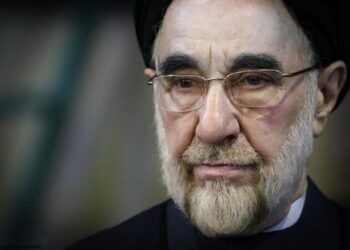Nikolai Patrushev, secretary of the Presidential Security Council, flew into Tehran where he met with President Ahmadi-nejad and other officials.
Russia is trying to find a formula that will get the talks moving.
In July, Russian Foreign Minister Sergey Lavrov met with President Obama and suggested a “step-by-step” approach under which Iran would answer questions about its nuclear program one-by-one and the West would ease sanctions bit-by-bit in response.
Some American officials are understood to be delighted with the Russian initiative. It is not that they expect the Russians to get anywhere. But they expect that failure will move Russia’s attitude closer to the West and make it more willing to support serious sanctions.
Many officials in Tehran, of course, are perfectly aware of that possibility and they are likely to do all they can to mollify the Russians while not actually shifting Iran’s position.
Analysts had mixed thoughts on the Russian initiative.
Mark Fitzpatrick of London’s International Institute for Strategic Studies told Reuters, “It is certainly easier for Iran to respond to a Russian gambit than to Western pressure.… If Russia’s plan can get Iran to the negotiating table, then great. Talks have to start somehow.”
But Farideh Farhi of the University of Hawaii, was pessimistic. She said the Russian plan was nothing new. “Tying Iran’s step-by-step moves to a reduction of sanctions is something that has not worked and it works even less now that so many sanctions against Iran are unilateral sanctions imposed by the US Congress and cannot be negotiated by representatives of executive branches in both countries,” she told Reuters.
Actually, the main sanctions hurting Iran are banking restrictions imposed by the US Treasury Department. The only sanction of any measurable heft imposed by the US Congress is the ban on US Imports from Iran, which chiefly hurts the carpet industry.
Fitzpatrick said he expected Iran would resume its old tactic of trying to work the frictions between Russia and China on one hand and the United States on the other. “Iran will seek to exploit the differences,” he said.














